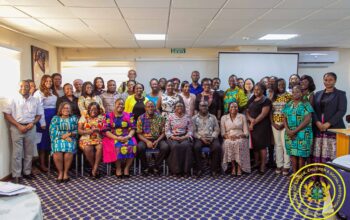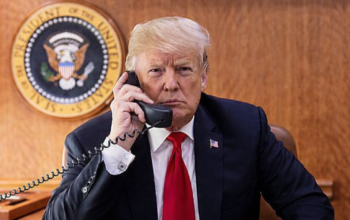The statement made by Emmanuel Armah Kofi Buah, the Minister of Lands and Natural Resources, underscores the severe threat that illegal mining, or “galamsey,” poses to both the environment and the well-being of Ghanaians. By describing galamsey operators as “terrorists,” he emphasizes the danger they represent—not only by damaging natural resources but also by causing health hazards, environmental destruction, and societal instability.
Illegal mining has long been a critical issue in Ghana, with its devastating effects on the environment, water sources, and people’s livelihoods. The pollution of rivers, loss of forests, and degradation of land are just a few of the serious consequences that affect millions. Beyond the environmental costs, illegal mining also fuels corruption and undermines sustainable development efforts in the country. By framing galamsey operators as “terrorists,” the minister aims to highlight the urgency and gravity of addressing this issue. It suggests that the activities of these miners are not just a legal concern but a matter of national security and public health.
The Minister’s call for a collective effort to combat illegal mining underscores the importance of unity and coordinated action across all sectors of society. The fight against galamsey isn’t just a task for the government alone; it requires active participation from local communities, security agencies, businesses, and individuals alike.
By highlighting the urgency of addressing the issue, especially through a collective approach, the Minister seems to be emphasizing that the fight against illegal mining is not just about enforcement but also about changing the mindset and behavior of those involved. This could mean providing alternative livelihoods for miners, improving law enforcement, and raising awareness about the environmental and health risks associated with galamsey.
A collective effort could also include strengthening policy measures, enhancing education on the long-term impact of illegal mining on future generations, and encouraging sustainable practices in mining. It’s crucial that all stakeholders, including the general public, feel a sense of responsibility and act together to protect the country’s resources and well-being.
The Minister’s statement draws attention to the serious and alarming consequences of galamsey, particularly the contamination of water systems, which directly threatens public health. The mention of turbidity levels in water being as high as 5,000 to 12,000, compared to the normal standard of 500, illustrates the scale of the pollution caused by illegal mining activities. This contamination poses a major threat to communities who rely on these water sources for drinking, farming, and daily activities. It’s a powerful way of highlighting the urgent need for action. The Minister’s reaffirmation of the government’s commitment to using all available resources is crucial, as it shows a clear and strong resolve to address the issue at all levels. It’s not just about enforcing laws, but also about ensuring that the environment is protected for future generations and that public health is not compromised. His acknowledgment of the environmental damage to forests, water bodies, and farmlands highlights the wider scope of the problem, showing that galamsey isn’t just an isolated issue—it impacts the entire ecosystem and the livelihoods of countless GhanaianOn the other hand, the Minister’s openness to welcoming legitimate small-scale miners is a positive step toward resolving the issue. By providing a structured path for small-scale miners to engage in responsible and sustainable practices, the government could help channel those involved in galamsey into legal avenues, ensuring they contribute to the economy in a way that doesn’t harm the environment or public health. This approach encourages miners to operate within the bounds of the law, fostering a culture of responsibility.
The call for a “collective fight” is essential. As the effects of galamsey reach far and wide, it is clear that tackling it requires a multi-pronged approach: law enforcement, education, policy reform, and community engagement.









